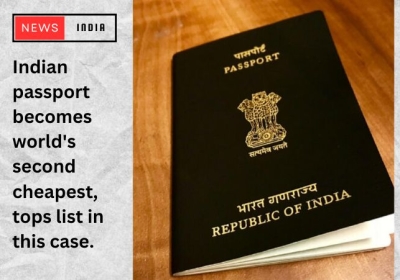Shahryar Khan
Former Foreign Secretary of Pakistan and former Chairman of the Pakistan Cricket Board, Shahryar Khan, passed away on Saturday at the age of 89.
- By Abhishek --
- Monday, 25 Mar, 2024
Remembering Shahryar Khan: A Legacy of Diplomacy and Cricket.
Pakistan mourns the loss of Shahryar Khan, a towering figure in both diplomatic circles and cricket administration, who passed away at the age of 89. Born on March 29, 1934, in Bhopal, his lineage traced back to nobility, yet he carved his path marked by service and dedication.Shahryar Khan's tenure as Pakistan's Foreign Secretary showcased his diplomatic finesse, fostering relationships on the global stage. His leadership extended to cricket, where he served as Chairman of the Pakistan Cricket Board, steering the nation through triumphs and challenges.Beyond his official roles, Shahryar Khan's connections bridged cultures. As the father of Bollywood actor Saif Ali Khan and the uncle of cricketer Mansoor Ali Khan Pataudi, he left an indelible mark on both entertainment and sports.His legacy is not merely one of titles and positions but of values – integrity, humility, and a commitment to excellence. Shahryar Khan's contributions will continue to inspire generations, reminding us of the power of diplomacy and sport to unite nations and transcend boundaries. In honouring his memory, Pakistan celebrates a life lived with purpose and distinction
Shahryar Khan's Journey in Pakistan.
Aqeel Abbas Jafari, a researcher who delved into the journey of Shahryar Khan's family from India to Pakistan, extensively documented their story on BBC. Khan himself recounted his trip to Pakistan with his mother, Princess Abida Sultan, in his lifetime.Princess Abida Sultan, heir of the Bhopal principality in India, expressed her desire to move to Pakistan with its founder, Muhammad Ali Jinnah, in 1948. Jinnah, upon hearing this, remarked about needing someone to rival Meesa Pandit, referring to Vijay Lakshmi Pandit, who represented India at the United Nations. Abida Sultan eventually arrived in Pakistan with just two suitcases, as she learned of Jinnah's death while collecting her documents at the Pakistani embassy.This princess, raised in the lap of luxury in two Indian states, ' decision to forsake her legacy and settle in Karachi raises questions. To understand her choice, we must delve into Abida Sultan's life.Born on August 28, 1913, in the Raj Mahal of Bhopal, Sultan Jahan Begum carefully oversaw Abida Sultan's upbringing. Under the guidance of Sheikh Muhammad Arab, she received diverse training, including equestrianism, marksmanship, sports, and religious education. Despite her privileged upbringing, expressions of love were rare in her family, making a simple gesture like a kiss from her mother memorable
Player, Hunter, Pilot
Shahryar Khan's mother, Abida Sultan, was not only a skilled pilot but also excelled in sports, particularly squash and horseback riding, during her stay in London. She played squash with Hashim Khan's relatives at the Grampians Squash Court and won the All India Women's Squash Championship in 1949. Additionally, she ventured onto the hockey field and enjoyed hunting expeditions with her father, Nawab Hamidullah Khan.The treatment of Muslims influenced Abida Sultan's decision to move to Pakistan from Bhopal. Raised in a royal family, she received extensive training in horseback riding from childhood, being placed on a horse's back in baskets and later on "bucket chairs" tied to the horse.Despite being offered the Nawabship of Bhopal after her father died in 1960, she relinquished her rights in favour of her sister, Sajida. Sajida Sultan later married Nawab Iftikhar Ali Khan of Pataudi, becoming the grandmother of actor Saif Ali Khan.In 1964, Abida Sultan, though previously uninvolved in politics, joined the Council Muslim League and supported Fatima Jinnah's candidacy in the presidential election against Ayub Khan. However, despite winning with a simple majority, Jinnah's victory was controversially overturned.
The princess relinquished her inheritance because?
In India, the princely states were dissolved, and the Nawab of Bhopal's role became symbolic, yet they still received monthly stipends. Princess Abida had sent her son Shahryar to Oundle boarding school in England to shield him from the anticipated violence of partition.Shahryar Khan explains her decision to move to Pakistan after renouncing her Bhopal status, citing the distressing discrimination against Muslims. Witnessing the arrival of a train full of dead Muslim refugees in Bhopal deeply affected her, influencing her choice to relocate to Pakistan.Concerned for her son's future, she believed he'd have limited opportunities in India and aimed to distance him from the opulent lifestyle associated with many nawabs, including those of Bhopal. Arriving in Karachi in 1950, she settled in Malir, where she lived for over fifty years until her passing. The house there was built with her savings, as she received no government assistance, and she endured eight years without electricity.
Cricket Diplomacy
Shahryar Khan is considered one of Pakistan's most experienced diplomats. He served as an ambassador to France, Jordan, and Britain and as Pakistan's Foreign Secretary from 1990 to 1994.He also served as the Under-Secretary-General of the United Nations in Rwanda.Shahryar Khan has written six books, including 'Begum of Bhopal', 'The Shallows Graves of Rwanda', 'Cricket: A Bridge of Peace', 'Memoirs of Rebel Princesses', 'Cricket Colloquium', and 'Shadows Across Playing Fields'.He studied Pakistan's foreign policy at the Lahore University of Management Sciences (LUMS).
Shahryar Khan went to London in his childhood, where cricket became his favourite hobby. He continued to play cricket while participating in education and diplomacy, but due to his diplomatic responsibilities, he couldn't pursue first-class cricket.Shahryar Khan was the Chairman of the Pakistan Cricket Board from 2003 to 2006, but he could not complete his term due to the Oval Test controversy, which led him to resign from his position.He assumed the position of Chairman of the Pakistan Cricket Board for the second time on August 18, 2014, and then stepped down from this position in 2017. Shahryar Khan took several steps during his term as Chairman of the Pakistan Cricket Board.
His first tenure was successful in many respects, with his most significant achievement being the resumption of cricket relations between India and Pakistan in 2004. Former presidents of the Board of Control for Cricket in India (BCCI), Raj Singh Dungarpur and Jagmohan Dalmiya, acknowledged Shahryar Khan's efforts in restoring India-Pakistan cricket relations.In his second term as Chairman, Shahryar Khan made every possible effort to revive cricket relations between India and Pakistan. However, the Board of Control for Cricket in India cited a lack of permission from their government as the reason for not allowing the series to take place. Consequently, this effort failed.Shahryar Khan also made significant efforts to return international cricket to Pakistan. However, terrorist incidents in the country hindered his efforts. As a result, this was the only team, apart from Zimbabwe, who was willing to come to Pakistan to play.
Opposition to the Big Three
Shaharyar Khan's other notable achievement is the end of the 'Big Three'.
When he took over as Chairman of the Pakistan Cricket Board, the Board had already supported the 'Big Three', but Shaharyar Khan opposed it in the interest of Pakistan cricket. He played a crucial role in ending the 'Big Three'.Shaharyar Khan brought foreign coaches to Pakistan in both his terms, first Bob Woolmer and then Mickey Arthur.Shaharyar Khan remained completely independent in making decisions in his first term. In the second term, there were some disagreements with the Pakistan Cricket Board's Executive Committee Chairman Najam Sethi.Shaharyar Khan became the Chairman of the Pakistan Cricket Board during a legal battle between Najam Sethi and Zaka Ashraf for this position.

.jpg)




